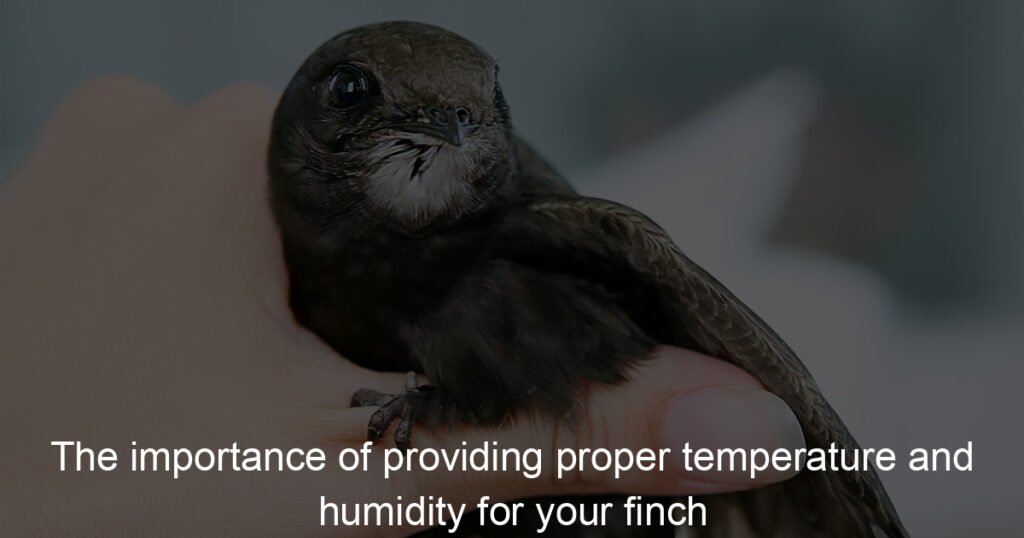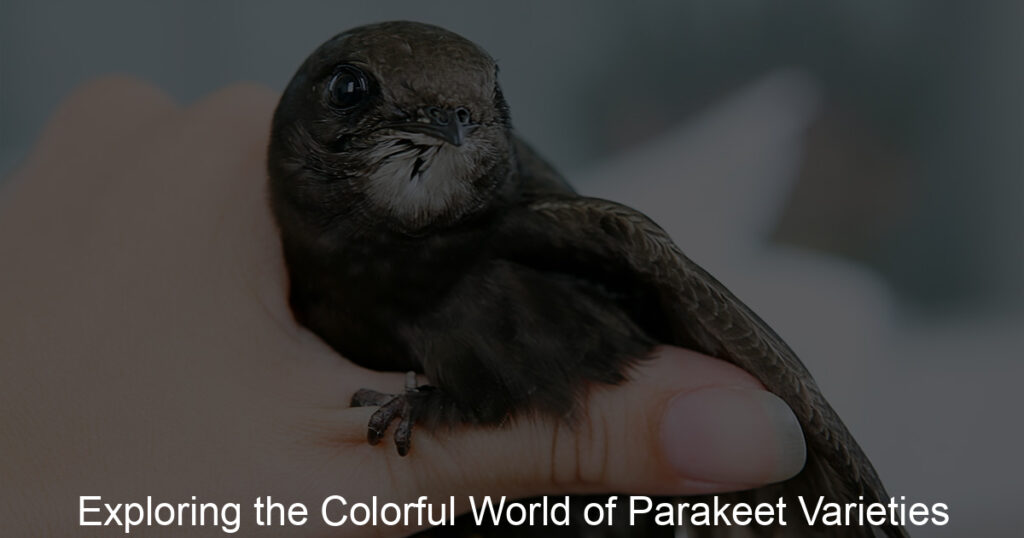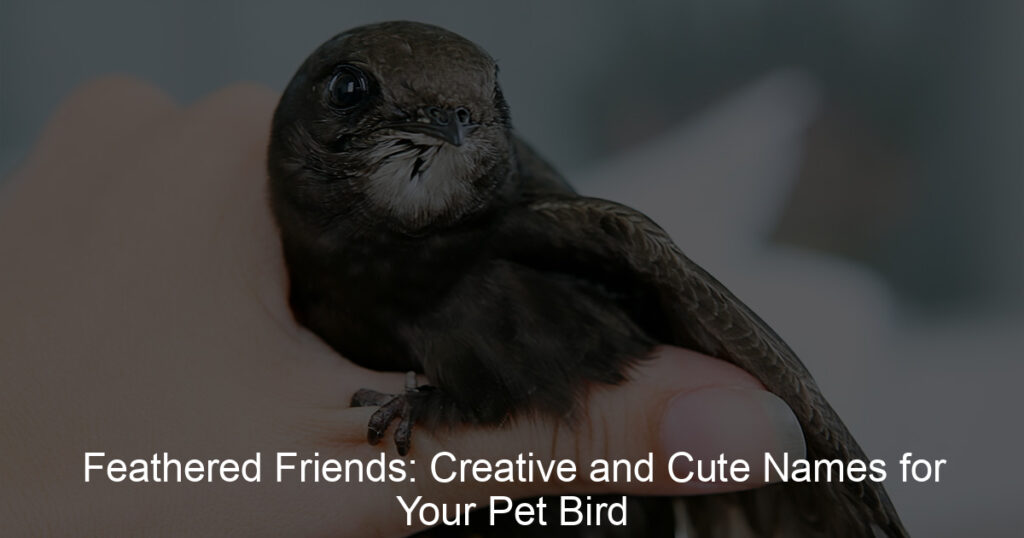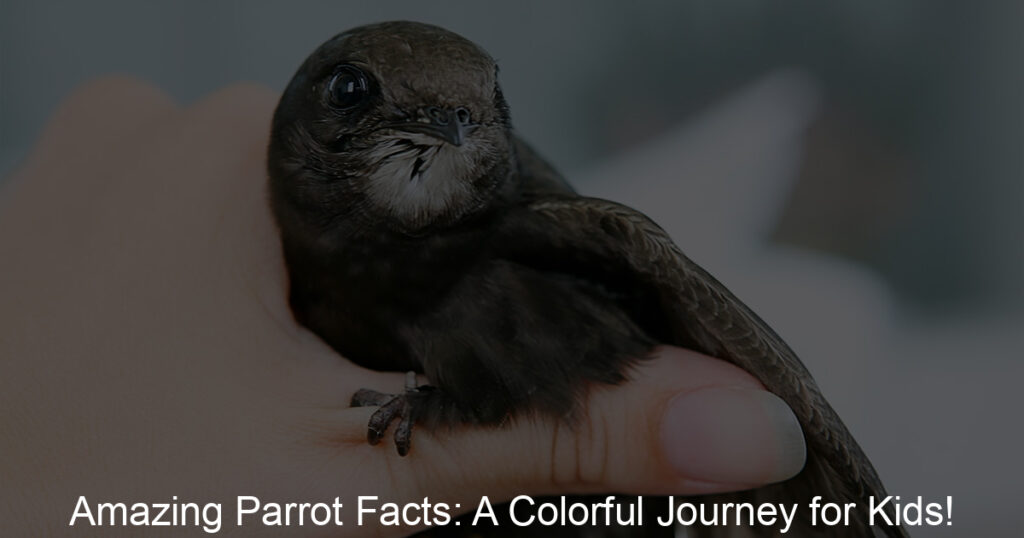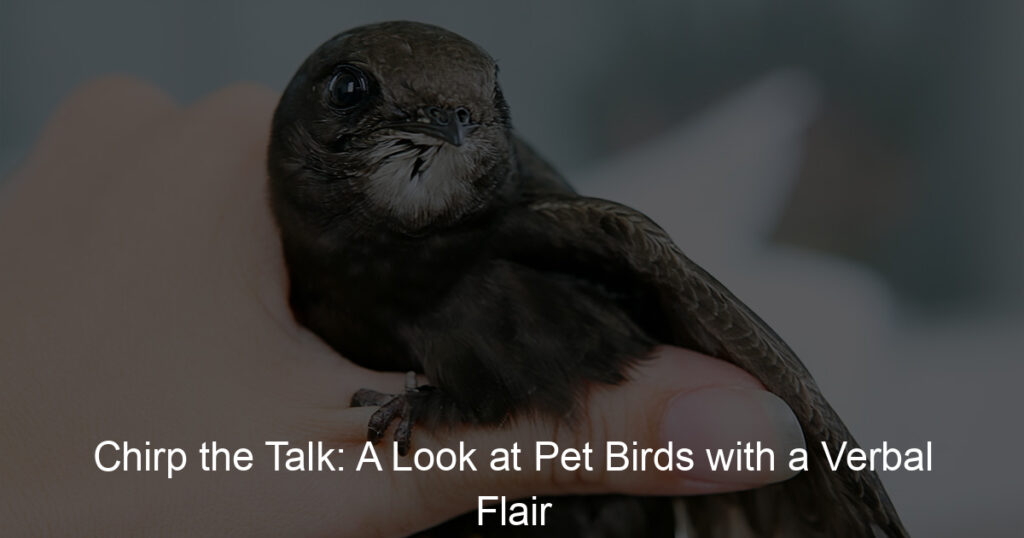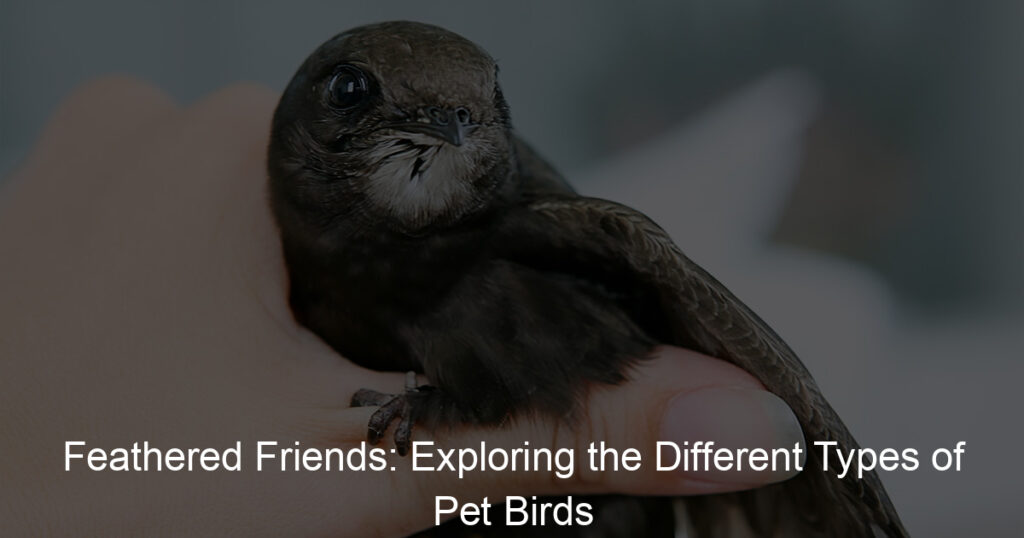Do you own a finch or are looking to get one but don’t know what kind of habitat to provide? As pet owners, we need to understand the needs of our feathered friends to make sure they live long, happy life. One very important aspect of caring for finches is providing an environment with the appropriate temperature and humidity levels that best suits their species’ specific requirements.
In this blog post, we will discuss why it’s so vital that finch owners maintain an ideal temperature and relative humidity as well as how they can do so safely and easily while giving their birds the best home!
So if you’re unsure about proper temperatures and humidity levels for your new-found friend (or might need some advice on improving your existing setup), then read ahead for more information about keeping your beloved companion healthy and happy!
Why are temperature and humidity important?
Temperature and humidity are two of the most important factors in a finch’s habitat. Finches are native to warm climates so maintaining a temperature between 70-80°F (21-26°C) is essential for their overall health. If temperatures drop too low, they can become susceptible to illness or digestive issues.
The relative humidity should remain between 40-60%. If the air is too dry, it can lead to problems such as respiratory infections which can be fatal for your finch. On the other hand, if the air is too humid, it can cause fungal and bacterial growth which can also prove deadly.
The ideal temperature and humidity levels for a finch depend on the species and should always be monitored to make sure your bird is comfortable.
What temperature is good for finches?
Finches can be kept in various temperatures, depending on the type and number of birds you have. Generally speaking, a temperature of about 68-74°F is considered ideal for most finches.
They respond well to slight changes in temperature, so it is important to keep a consistent level but not an overly warm one; no higher than 80˚F should be maintained in the immediate area.
If your finch cage is near direct sunlight or your household tends to be hot all year round, having a fan and providing plenty of water are two ways to cool things off inside the enclosure. Knowing what temperature is good for your finches will ensure they are healthy and happy – and that’s always music to everyone’s ears.
What is the best humidity for finches?
Finches typically thrive in a humidity level of around 40 to 50 percent. This is considered the ideal balance for a comfortable and healthy environment for your finch.
Though finches are hardy birds, they can suffer from both too much and too little humidity. If the air around them is too humid, it can increase their chance of developing respiratory infections; on the other hand, if the air is too dry it could lead to issues with their feathers or skin conditions.
To ensure your finch stays happy and healthy, keep an eye on the relative humidity by using a hygrometer and make adjustments as needed to create a safe and conducive atmosphere.
What is the best humidity for bird breeding?
Birds breeding in the right environment is key to successful outcomes. The ideal humidity level for bird breeding should be kept within a range of 50-65%.
A dry environment above 65% humidity can increase the risk of respiratory problems while below 50% can cause dehydration and make it difficult to regulate body temperatures. To avoid any issues down the line, keep your bird’s environment in this recommended range to ensure they stay healthy and your hatching rates remain high.
Do finches like humidity?
Finches are delicate and beautiful creatures, and the question of whether they like humidity often comes up. Fortunately, these birds do indeed like humidity and thrive in environments that aren’t dry. This applies to both outdoor cages as well as indoor aviaries.
While finches enjoy the heat provided by humid climates, make sure not to overdo it – too much humidity can lead to mold growth! To provide a perfect environment, use humidifiers if necessary to ensure comfort and health for your beloved finch.
Do finches like being misted?
Finches may seem like delicate little birds, but they love a misting! Most finches thrive in humidity, so when you mist them with water they will fluff their feathers, giving the perfect shower!
Not only does it help keep their feathers clean and healthy, but it also helps them cool down in hot weather. Plus, it’s tons of fun to watch the little birds enjoy their misting showers. So next time you give your finches a misting, don’t be surprised to see them singing with joy!
Do finches like water baths?
Finches are great little birds with sweet personalities, so it’s natural to wonder if they like water baths. Finches do enjoy taking a dip from time to time! Special birdbaths should be shallow enough for them to stand and perch in as well as wide enough for them to paddle around without ending up out of the water.
Not only does this give your little feathered friends an enjoyable activity but it also helps keep their feathers in good condition too. If you have finches at home, make sure to give them a nice water bath once in a while – they’ll love you for it!
How do you know if a finch is cold?
When winter hits, it’s important to make sure your finch is warm and cozy. If your feathered friend appears cold, there are a few ways you can tell.
Pay close attention to their behavior: a cold finch might be fluffed up more than usual, standing still on the bottom of the cage rather than hopping around, and generally looking more sluggish. Touching them can also be a clue – if their feathers feel unusually cool or damp, they’re likely experiencing temperatures too low for them.
Providing warmer perches and making sure they always have access to fresh water are good precautions against chills you can take year-round to keep your lovable companion comfortable and healthy.
Do finches need heat?
Finches are hardy little birds that have been known to survive in some rather chilly climates. But, does that mean they don’t need any heat at all? Finches do require a certain amount of warmth. Depending on their breed and the climate in which they live, heating needs can vary.
For example, aviary birds may need more heat than those living outdoors in temperate regions. Ultimately, providing your finch with the right combination of background temperature and supplemental heat is an essential part of maintaining one’s health and well-being. So make sure you keep your finch warm enough to prevent them from getting too cold!
Do finches like to be by windows?
Finches make such wonderful pets – they are so entertaining to watch and can bring a lot of joy to the home. To fully appreciate them, many people like to keep their finches near a window or in the sun. This allows them to explore sunlight and breathe fresh air, which is important for healthy feather growth.
Plus, with plenty of suns, there’s a good chance they will be singing away! Not only this, but a window provides finches with an interesting outdoor view that they can marvel at all day long. So while it is not essential they are kept by or near one, having a window provide certainly adds to their overall experience.
Conclusion: The importance of providing proper temperature and humidity for your finch
When it comes to providing a comfortable and healthy environment for your finch, temperature, and humidity are key components in the equation. Keeping the proper levels can help prevent certain illnesses and viruses from entering their bodies. Ultimately, this could save you money on visits to the vet and provide you peace of mind as a pet owner.
Taking the necessary steps to appropriately monitor your finch’s surroundings will add years onto their life that they would not appreciate any less than yourself. This can be done easily with a thermometer, hygrometer, or both depending on the needs at home, making it an easy step in caring for your beloved companion(s).
Lastly, it is important to note that if your finch does appear sick or behaves unusually; take them in for a visit with their veterinarian as soon as possible. Proper care and maintenance can go a long way and will be beneficial to both birds and owners alike!

